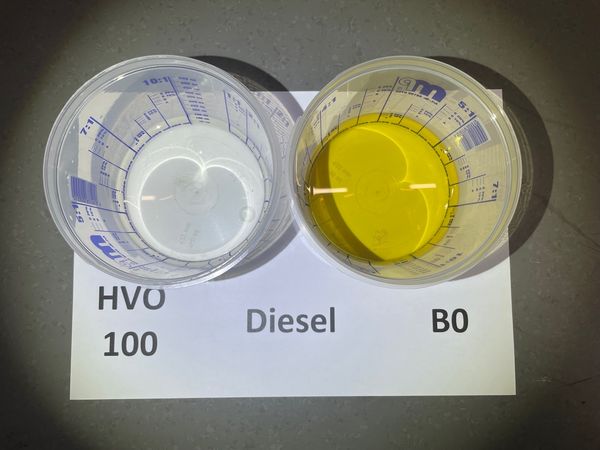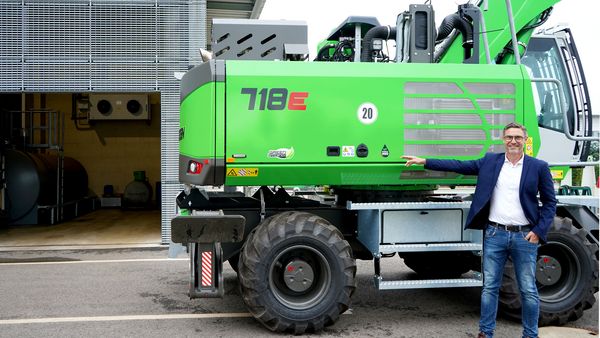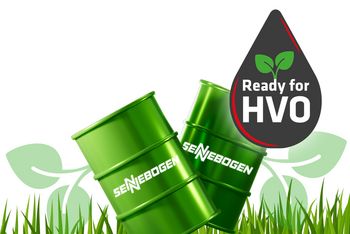SENNEBOGEN plant relies on alternative fuel HVO
For over a year now, the SENNEBOGEN Plant V in Steinach has been consistently using the alternative fuel HVO to refuel its machines. The goal: to reduce emissions and strengthen sustainability. Without compromising on performance.
HVO (hydrogenated vegetable oil) - synthetically produced fuel
HVO stands for Hydrotreated Vegetable Oil and is a synthetically produced fuel. It consists primarily of vegetable and animal waste materials such as used cooking oils or waste lipids, which are converted into hydrocarbons. Chemically, the fuel is almost identical to fossil diesel, but its combustion is significantly cleaner. It also proves to be particularly sustainable. Depending on the operation and origin of the raw materials, CO2 emissions can be reduced by up to 90% over the entire life cycle.
Results after one year of changeover: consistently positive
Since June 2024, all rental and used machines, company cars, service vehicles, and diesel forklifts at the Steinach site have been fueled with climate-friendly HVO-100. After more than a year of transition, the results are consistently positive, as the test phase was completed without any technical or logistical difficulties. The synthetic fuel can be used in existing diesel engines without any modifications and in all weather conditions. Availability also proved to be no problem.
more than 165 tons of CO2 saved per year

“Refueling our machines with high-quality HVO costs us approximately 4 to 6 cents more per liter of fuel, but in return, the CO2 emissions of our machines during operation are reduced by around 2.4 kg of CO2 per liter consumed – a contribution to a more sustainable future that we are happy to make. By using HVO-100, we save around 70,000 liters of diesel per year at our Steinach site, which also means a reduction of more than 165 tons of CO2”, says Dr Andreas Maurer.
Since HVO can be used in all Cummins diesel engines that meet emission stage V requirements and can also be mixed with fossil fuel, almost all SENNEBOGEN machines can be operated with this CO2-reduced fuel.
Press images

Press images

Press images



